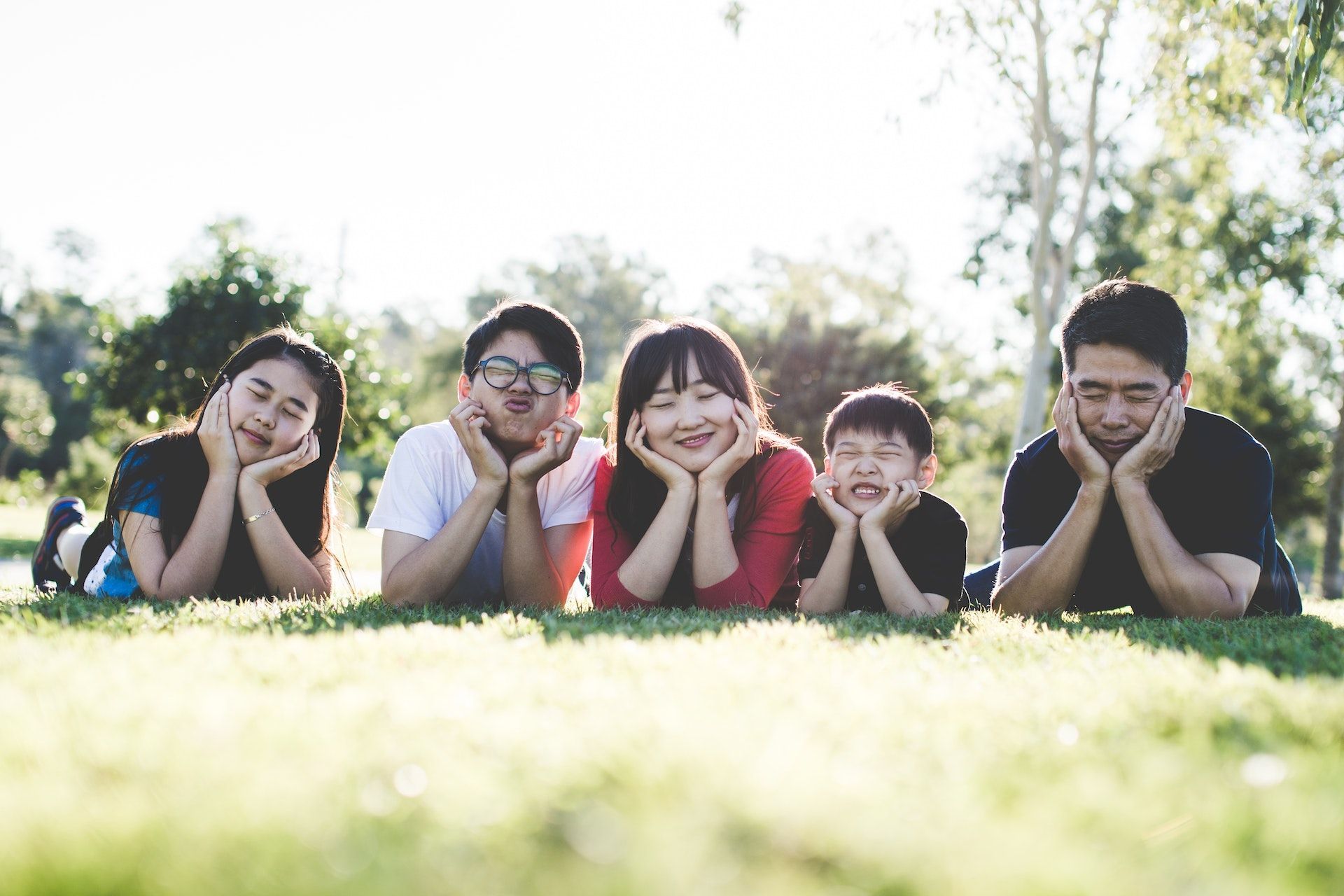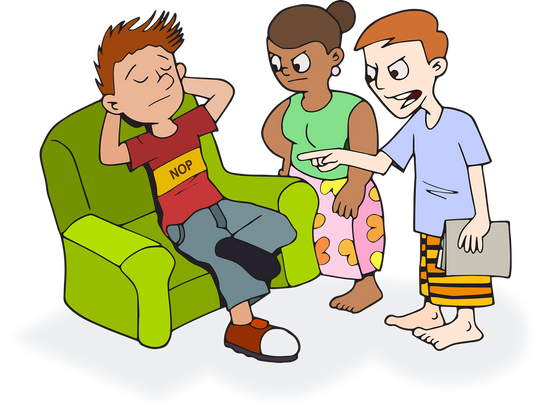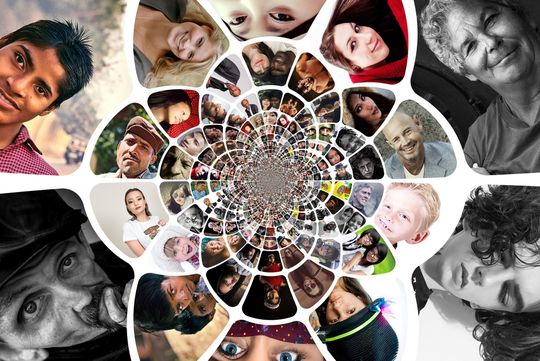Imagine, you are in South Korea, walking to school, and your female friend calls you from behind, yelling … unnie or would she call you noona? Now you are exiting a cafe and you see a familiar male friend just outside. Would you call him oppa or hyung? In this lesson, we will learn the answer to these questions.
Oppa, hyung, unnie, and noona are all honorifics that people use to refer to each other in Korea. Korean is a hierarchical language, this means that age, rank, and closeness are important details to consider when communicating. What you call someone will depend on these three factors.
Look at the following table to see what you will learn in this lesson. Try listening to each of the words and saying them aloud.
| Audio | English | Pronunciation | Speech Level |
|---|---|---|---|
| older sister | eonni | casual/polite | |
| older sister | nuna | casual/polite | |
| older brother | hyeong | casual/polite | |
| older brother | oppa | casual/polite | |
| younger sibling | dongsaeng | casual | |
| younger brother | namdongsaeng | casual | |
| younger sister | yeodongsaeng | casual | |
| senior | seonbae | polite/formal | |
| junior | hubae | polite/formal | |
| friend | chingu | casual | |
| born the same year | donggap | any | |
| mr/ms | ssi | polite/formal | |
| mr/ms | nim | polite/formal | |
| How old are you? | naiga eotteoke doeseyo? | Polite |
Now we will move on to the explanation of when to use the Korean honorific titles above and more.
Korean Honorific Titles
1) 오빠 (oppa)
If you have watched a drama or listened to kpop, you might have heard this title before. 오빠 (oppa) means older brother and can only be used by younger women. A woman might call her older brother or an older male friend 오빠 (oppa). It literally translates to “older brother” and is used in close relationships.
You would not call someone 오빠 (oppa) unless you are close to that person and usually have been told before to call them 오빠 (oppa). 오빠 (oppa) is also commonly used in romantic relationships.
Example:
오빠 나랑 사귈래? (oppa narang sagwilrae)
Older brother, do you want to date?
If you’re in a relationship now with a Korean, you’ll want to check out this article on love.
2) 형 (hyong)
This title is used by men to call an older male friend or older brother. This one also translates to “older brother”. 형 (hyong) is used in familiar relationships where casual language or polite language is used.
The use of the title will usually be determined either by the younger person asking the older person if they can call them 형 (hyong) or the older person telling the younger person to call them 형 (hyong).
Example:
형, 그 새로 나온 축구 영화 봤어? (hyong geu saero naon chukkku yonghwa bwasso)
Older brother, did you see that new soccer movie?
3) 언니 (onni)
언니 (onni) is used by women when referring to or calling an older female. It translates to “older sister” and is used with friends and family. Just like 오빠 (oppa) and 형 (hyong), the use of the 언니 (onnie) is usually determined by the older or younger individual asking to use it.
Example:
언니, 오늘 쇼핑 할래? (onni oneul ssyoping halrae)
Older sister, do you want to go shopping today?
4) 누나 (nuna)
누나 (nuna) is used by males when talking to an older women. It means “older sister” and is used with an older female friend or older sister. Just like the above titles 누나 (nuna) can be used in casual and polite speech. Its usage is determined by either the older or younger person in the relationship.
Example:
누나! 언제 와? (nuna onje wa)
Older sister, when are you coming?
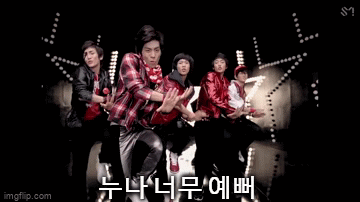
5) 동생 (dongsaeng)
동생 (dongsaeng) means “younger sibling”. It can be used when referring to either a male or female younger than you regardless of their biological relation to you. It is used in close relationships and shouldn't be used to refer to just anyone younger than you.
While 동생 (dongsaeng) can be used to refer to both a male and female if you are wanting to be more specific you can use 남동생 (namdongsaeng) and 여동생 (yodongsaeng). 남동생 (namdongsaeng) is used to refer to males and 여동생 (yodongsaeng) to females.
The 남 (nam) part of 남동생 (namdongsaeng) comes from the word 남자 (namja), which means “man” and the 여 (yo) in 여동생 (yodongsaeng) from 여자 (yoja), meaning “woman”.
Example:
제 남도생은 오늘 대학원에 가요 (je namdosaengeun oneul daehagwone gayo)
My little brother is going to college today.
6) 선배 (sonbae)
This title is commonly used in school and in the workplace. Unlike the above titles we learned, this title is not determined by age or gender, but rather by rank and experience. It translates to “senior” and is used with someone who holds a higher position because they started their career in the same field earlier.
It is also used in school to refer to or talk to someone who is in an older grade or even graduated. However, it is only used with people who have attended or are attending the same school as you. This title is polite and can be used with anyone despite your closeness.
Example:
선배, 숙제 좀 도와줄 수 있을까요? (sonbae sukjje jom dowajul ssu isseulkkayo)
Senior, can you help me with my homework?
7) 후배 (hubae)
후배 (hubae) is like the above honorific title as it is used in the same context, but instead of being used with those higher in rank or school year than you, it is used with those lower in rank and school year. You can use this when talking to a classmate who is a grade below you or a coworker who is in a lower rank.
Just like 선배 (sonbae), 후배 (hubae) is polite and can be used even if you are unfamiliar with the person.
Example:
제니는 내 후배인 데 선배 같아 (jenineun nae hubaein de sonbae gata)
Jenny is my junior, but she seems like a senior.
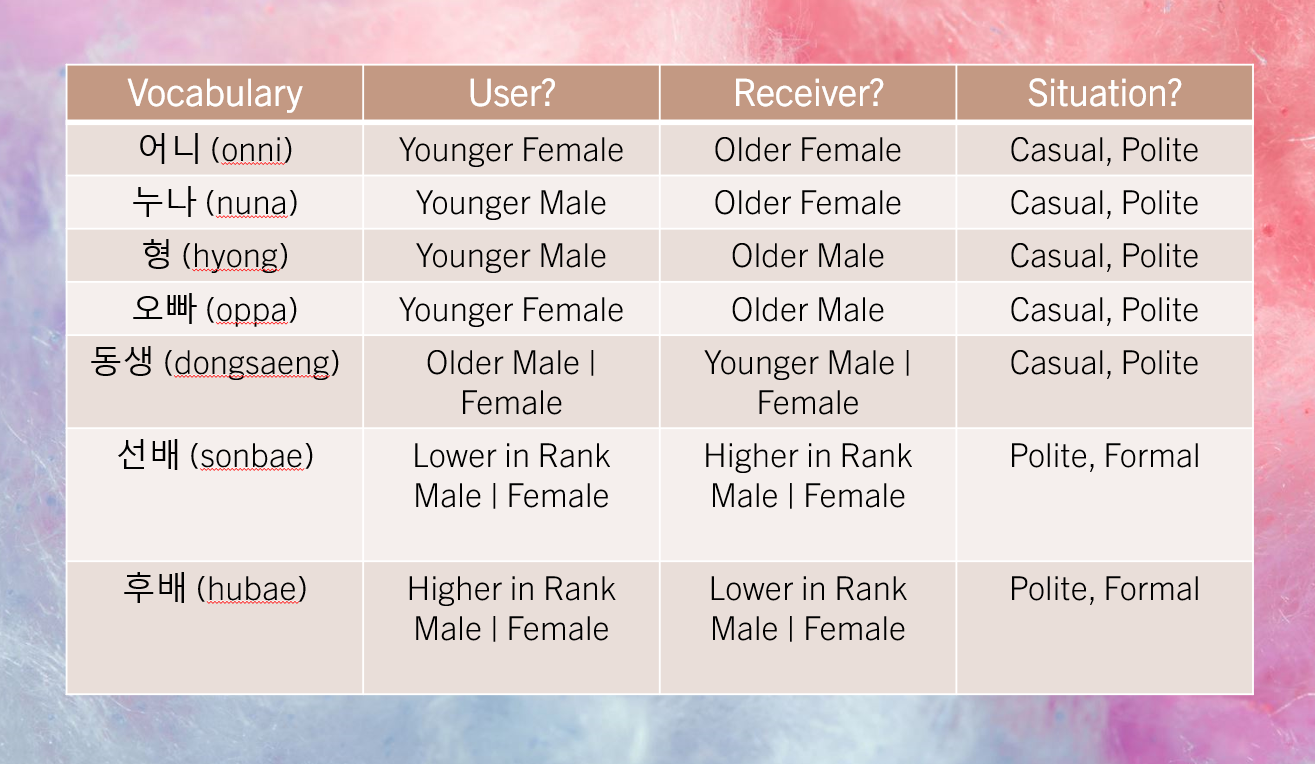
You have now learned 7 of the most common honorific titles in Korean. Understanding the nuances of each of these titles and the context they are used in will improve your Korean significantly. It can be hard at first to understand when to use each of the above titles.
You might see a Korean male call his older sister, his female friend, and his female cousin 누나 (nuna), but then call a female coworker 선배 (sunbae). These kinds of situations might confuse you, but as you study the situations and context, you will come to understand the nuances of each of these titles.
Now, let's move on to some more words and honorifics that I can guarantee you will hear if you spend any time interacting with Korean media or with a Korean person.
Bonus Words
1) 동갑 (donggab)
You might hear someone say this after asking you your age, it means “same age”. But, in Korea, being 동갑 (donggab) carries more meaning than it does in western cultures. Being 동갑 (donggab) means that it is easier to become friends as you don’t have to put as much thought into polite speech and manners.
When you’re 동갑 (donggab) neither of you have any of the responsibility and authority that comes with being older and younger. When Koreans meet a new person, and they discover that they are 동갑 (donggab) you can sense a slight relief. You get the sense, Ahh we’re equals and we can just chill out.
The example below is a common conversation that you might hear play out.
Example:
Person 1:
나이가 어떻게 되세요? (naiga ottoke dweseyo)
How old are you?
Person 2:
저는 98생 이에요 (joneun gusippalsaeng ieyo)
I was born in 98.
Person 1:
우리 동갑이네요! (uri donggabineyo)
We are the same age!
말을 놓을래요? (mareul noeulraeyo)
Do you want to speak casually?
Person 2:
그래! (geurae)
Ok!
2) 친구 (Chingu)
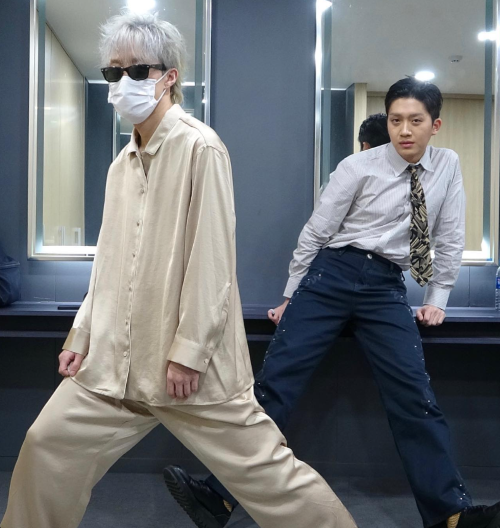
친구 (chingu) means “friend” in Korean and is used when referring to a friend or someone the same age as you. Calling someone significantly older than you 친구 (chingu) can sound off or even rude. Even if you are friends, 친구 (chingu) is not the best way to describe an older friend.
You can also use 친구 when referring to a child, even if you are not close with the child.
Example:
오늘 친구 만나러 갑니다! (oneul chingu mannaro gamnida)
I am going to meet a friend today!
3) 씨 (ssi)
This is an honorific that is put at the end of a name. It can be translated to Mr. or Ms. This honorific is most commonly used in business environments but it can also be used to show respect in formal situations.
Example:
민나 씨, 물 드릴까요? (minna ssi mul deurilkkayo)
Ms. Mina, would you like some water?
4) 님 (nim)
님 (nim) is also used to show respect to someone and is added to both names and honorific titles. 님 (nim) is a little more polite and formal than 씨 (ssi) and is commonly used in business situations. Below are some common words that you will hear 님 (nim) added onto.
고객님 (gogaengnim) - customer
자매님 (jamaenim) - sister (commonly used at church)
형제님 (hyongjenim) - brother (commonly used at church)
사장님 (sajangnim) - president (used to refer to the head of a business)
어머님 (omonim) - mother
아버님 (abonim) - father
You have now learned 7 of the most common honorific titles and 2 honorifics that can be added to names or titles to show respect to someone. By learning all these words and honorifics, you now understand some of the ways age can change speech in Korean.
But how do you find out if someone is older or younger than you? This seems like important information to know when determining what form of speech to use. Keep reading to find out!
Korean Age
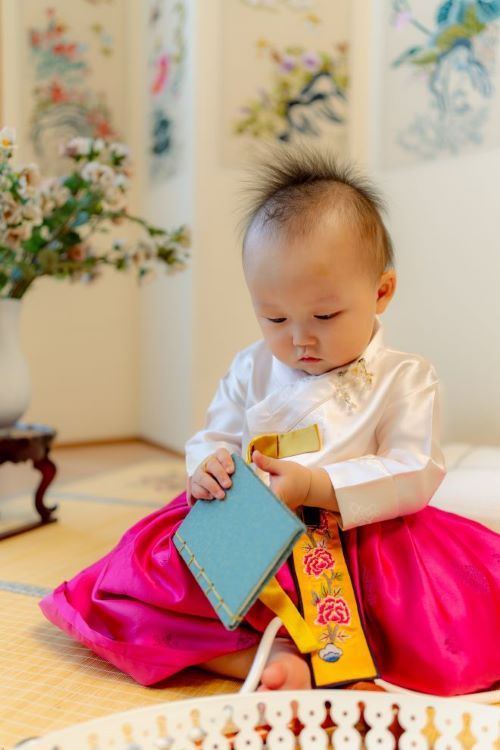
In Korea, when meeting someone close in age to you for the first time, it is common to ask “나이가 어떻게 되세요?” (naiga ottoke dweseyo). This means “how old are you?”. Your answer to this question will often determine how you refer to the person you are talking to and what level of speech you use with them.
But, this question “나이가 어떻게 되세요?” (naiga ottoke dweseyo) is not as simple to answer as it might be in almost any other country. In Korea, they go by a different age system. The Korean age system is based on the New Year rather than the day you were born.
You do not turn a year older with your birthday, but rather on the New Year when the whole country ages a year together. Koreans also consider the time spent in the womb as the first year of a baby’s life. This means you are the age of the year you were born in +1.
So, if the year is 2022 and you were born in 1998, no matter what day you were born or the current date, your Korean age would be 24+1 = 25. This has been the tradition in Korea for hundreds of years, but the recent administration is looking to do away with the system.
Read about it here!
You probably didn’t open this lesson expecting to do math. I sincerely apologize and promise this will be the last time you ever see equations in a Korean language lesson. Now let's learn some other ways in which age matters within social interactions.
Why Does Age Matter?
Besides speech patterns, there are expectations and manners that Koreans are expected to keep based on the age of the person they are interacting with.
If you are older, it is socially acceptable to ask those younger to do small tasks for you, such as running to get coffee or handing you a nearby object. As the older person, it is also expected that those younger show respect to you by using polite language and bowing lower than you.
But it's not all just a walk in the park, if you are the older one in a group, you might be expected to pay for meals. You will also be expected to lead the group as you are the one with the most authority to tell others what to do.
If you are younger, you are expected to use honorific language and bow to your elders. You will also be expected to do all the little tasks your elders might request of you. When going to a restaurant, the youngest sets the table and pours a drink for the elders at the table. After serving your elders, you will likely have your meal paid for.
As you can see there are pros and cons for seniors and juniors of a group. Everyone has the chance to be on both sides. Juniors are expected to show respect to their seniors and seniors are expected to take care of their juniors. This dynamic is a key characteristic of Korean culture.
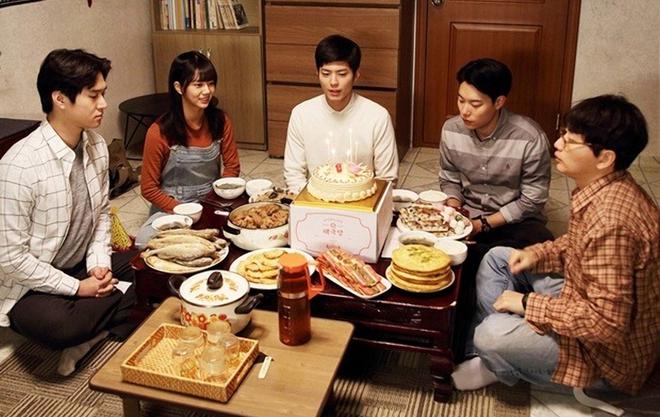
Congratulations, you have finished the lesson!! Together we have learned several honorific titles, how to calculate Korean age and what age entails in Korea. The concepts we have learned above are difficult to internalize unless they are practiced and listened for in conversations.
When studying Korean listen for the nuances of each of the honorific titles we have learned above. As you do this you will come to understand the situations in which each title is used. If you mess up once, twice or even twenty times, don't sweat it!
Knowing when to use honorific titles such as oppa, hyung, unnie and noona, is one of the hardest things about learning Korean as there is nothing quite like it in English. Koreans are very understanding of people learning Korean and won't be seriously offended if you make a mistake. So go out there and try out the things we learned today.
Thank you for sticking with me throughout this lesson! 그럼 다시 만날때 까지! (Until we meet again!).
